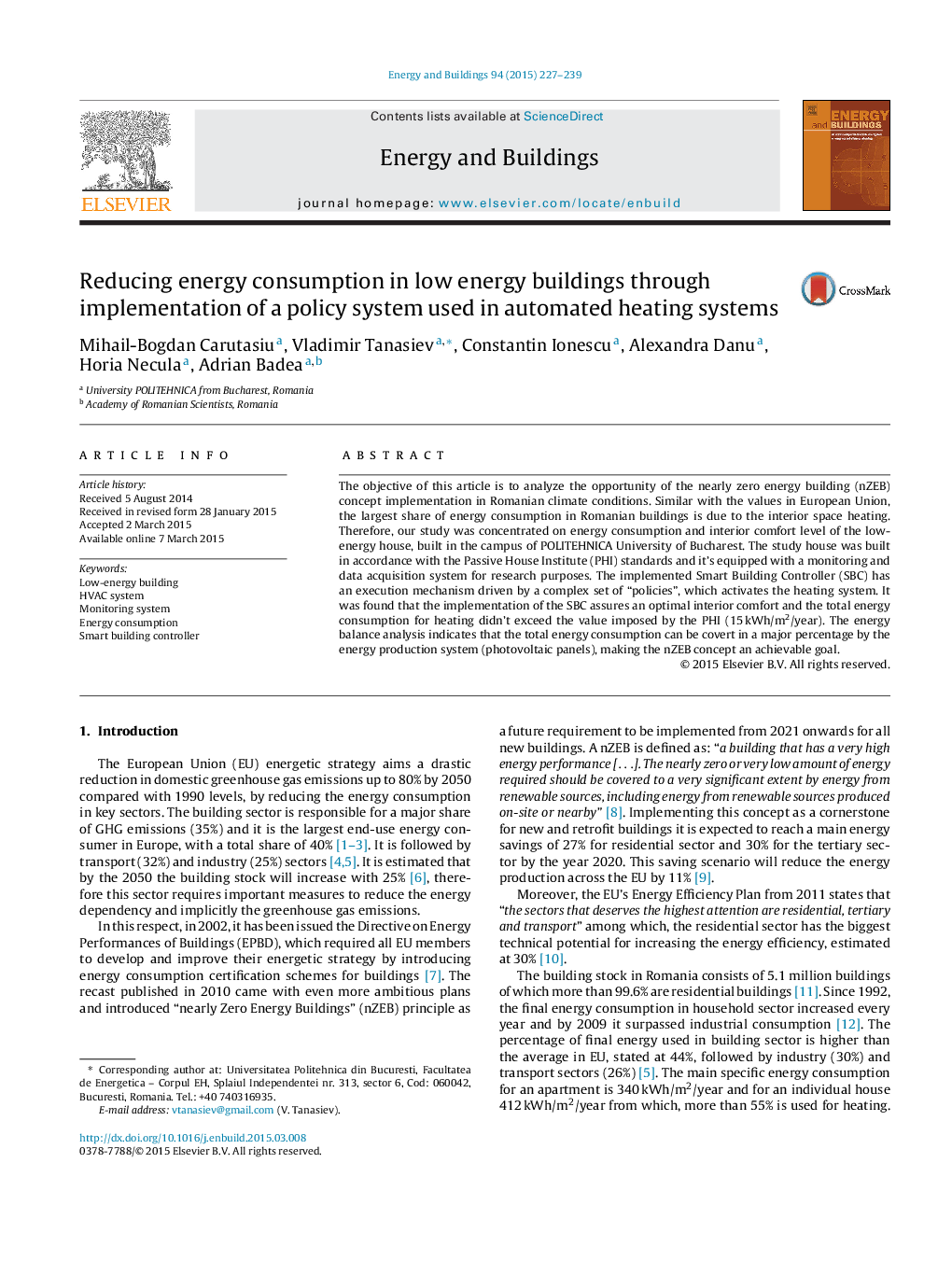| Article ID | Journal | Published Year | Pages | File Type |
|---|---|---|---|---|
| 6731713 | Energy and Buildings | 2015 | 13 Pages |
Abstract
The objective of this article is to analyze the opportunity of the nearly zero energy building (nZEB) concept implementation in Romanian climate conditions. Similar with the values in European Union, the largest share of energy consumption in Romanian buildings is due to the interior space heating. Therefore, our study was concentrated on energy consumption and interior comfort level of the low-energy house, built in the campus of POLITEHNICA University of Bucharest. The study house was built in accordance with the Passive House Institute (PHI) standards and it's equipped with a monitoring and data acquisition system for research purposes. The implemented Smart Building Controller (SBC) has an execution mechanism driven by a complex set of “policies”, which activates the heating system. It was found that the implementation of the SBC assures an optimal interior comfort and the total energy consumption for heating didn't exceed the value imposed by the PHI (15Â kWh/m2/year). The energy balance analysis indicates that the total energy consumption can be covert in a major percentage by the energy production system (photovoltaic panels), making the nZEB concept an achievable goal.
Related Topics
Physical Sciences and Engineering
Energy
Renewable Energy, Sustainability and the Environment
Authors
Mihail-Bogdan Carutasiu, Vladimir Tanasiev, Constantin Ionescu, Alexandra Danu, Horia Necula, Adrian Badea,
